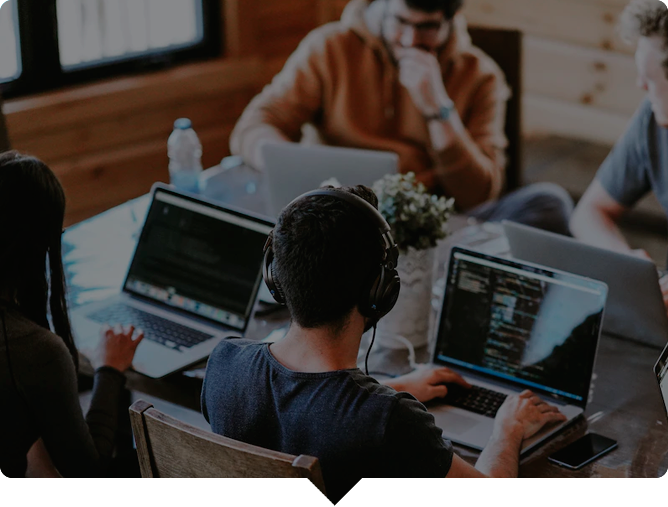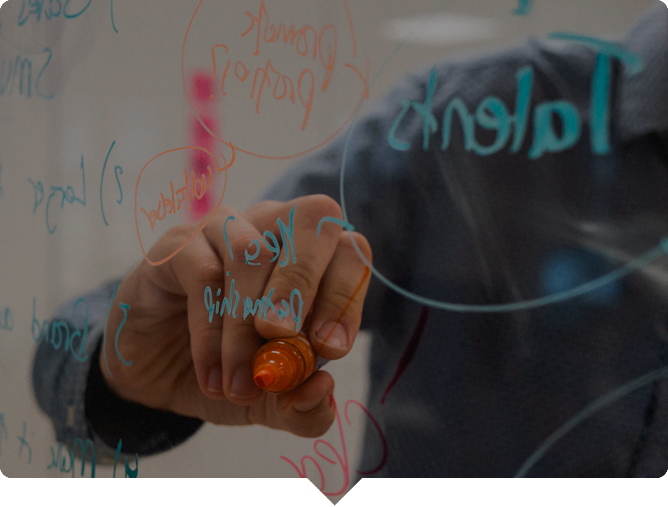Frequently Asked
Questions
(FAQs)
There are three ways to join Aurora: (1) register for courses as part of your degree program, (2) join Aurora Student Council (ASC), (3) join Aurora Student Schemes to become a Champion, Ambassador, or join an Aurora WorkPackage (WP) .
How do I register for Aurora Courses?
Please visit the Aurora Course Catalogue and follow the instruction under your selected course to register for the courses.
How do I join the Aurora Student Council (ASC)?
Each Aurora university nominates two student representative. Please visit the Aurora Student page and follow the application instruction to join the ASC.
How do I join the Aurora Student Schemes?
Please fill out the Aurora Student Ambassadors & Champions Application Form and you will be contacted about the result.
If you are currently enrolled full-time at one of the Aurora universities, you may apply to join Aurora.
The Aurora Student Council (ASC) was formed in October 2016 by Aurora students and has been run by students since then. It is a platform where student representatives from all Aurora universities come together and work towards a joint goal. Each Council decides upon its own priorities, projects, event and activities.
The ASC Members:
- Represent students and ensure Aurora’s student focus
- Develop and implement student initiatives
- Exchange experiences and improve student representation
- Engage in external events on behalf of Aurora
The Aurora Student Schemes were first launched in 2020. They provide additional student involvement in Aurora. Students can choose to sign up either as Champions or Ambassadors and can receive a bronze, silver, or gold Aurora certification based on the number of hours they contribute to the project. For more information on the roles, please see:
Work Packages are groups of related tasks within the Aurora project, or the sub-projects within the larger project:
- Each Aurora WP has a lead and a co-lead from Aurora universities.
- Members in work packages work together to achieve the goals (deliverables).
- Each work package is supposed to include at least one student representative.
The Aurora Student Council or Schemes members can join Aurora WorkPackages.
Yes, the courses are accredited and recognized among the Aurora universities.
Please visit the websites of the Aurora universities to find related services:
- Vrije Universiteit Amsterdam (VU)
- Career Services (Dutch/English)
- Professional Development (Dutch/English)
- Student Counseling and Mental Health Services
- Studying with Disability (Dutch/English)
- Student Wellbeing (Dutch/English)
- Social Safety (Dutch/English)
- Other student support services at VU
- University of Iceland (UI)
- University of East Anglia (UEA)
- University of Duisburg-Essen (UDE)
- Career Services (German)
- Office for Equity and Inclusion (German)
- Professional Development (German)
- Studying with Disability (German)
- Other student support services at UDE (German)
- University Federico II of Naples (UNINA)
- Universitat Rovira i Virgili (URV)
- Universität Innsbruck (UiBK)
- Palacký University Olomouc (UPOL)
- Université Paris-Est Créteil
- Copenhagen Business School (CBS) has the following services embedded into the student portal and can be accessed after sign in:
- Special Education Support (SPS)
- SPS Guidance Counselor
- SPS during exams
- Dyslexia
- Physical disability
- Psychological disability
- Disability Policy
- Exemptions
- SPS Guidance Counselor
- Student Coaching
- Campus Pastors
- Student Counseling Services
- International Student Services
- Harassment
- Career Services
- Special Education Support (SPS)
If you are a PhD candidate searching for an advisor, please see the Aurora PhD advisor directory.
For open opportunities, please visit Participation Opportunities.
The main goal of Aurora is to support the academics in equipping their students with the skills and mindsets necessary for them to thrive in a rapidly changing society and labour market.
To find out more, please see Aurora’s Practical Guide for Teachers or visit the Support for Teachers webpage.
Instructors may collaborate by either teaching courses or joining a Work Package (WP).
For more information, please contact the Aurora Institutional Coordinator at your university.
If you currently work as a professor in one of the Aurora universities, you may teach for Aurora.
Please see the list of Aurora Work Packages, contact the Aurora Institutional Coordinator at your university and ask to join your desired WP.
You may teach for Aurora by:
- Opening a course that you currently teach to Aurora students.
- Designing an Aurora course by yourself or in collaboration with other professors from Aurora universities.
For more information, please contact the Aurora Institutional Coordinator at your university.
Please contact the Aurora Institutional Coordinator at your university.
You may:
- Design and co-teach a course together
- Participate and teach in one of Aurora’s joint-programmes:
Understanding Europe
Sustainability & Climate Change
For more information, contact the Aurora Institutional Coordinator at your university.
Aurora Courses address major societal issues, and they are designed across one or more of the following benchmarks:
The SDGs or Sustainable Development Goals are a collection of seventeen objectives designed by the United Nations to serve as a “shared blueprint for peace and prosperity for people and the planet, now and into the future.” The SDGs are:
-
- No poverty
- Zero hunger
- Good health and well-being
- Quality education
- Gender equality
- Clean water and sanitation
- Affordable and clean energy
- Decent work and economic growth
- Industry, innovation and infrastructure
- Reduced inequalities
- Sustainable cities and communities
- Responsible consumption and production
- Climate action
- Life below water
- Life on land
- Peace, justice, and strong institutions
- Partnerships for the goals
Aurora is dedicated to the SDGs and each Aurora Course covers at least one SDG.
Endorsing Teaching for Societal Impact, Aurora teaches students to tackle society’s problems within its four Pilot Domains of:
- Sustainability & Climate Change
- Digital Society & Global Citizenship
- Health & Well-being
- Culture: Diversity & Identity
For more information, watch the
A competence framework defines the knowledge, skills, and attributes that students need to have to perform successfully during and beyond their college education.
Aurora Competence Framework is composed of three tools:
LOUIS (Learning Outcomes in Universities for Impact on Society) is an Aurora Competence Framework tool to measure the general academic and personal learning outcomes in subject-oriented courses and programs in academic education. It bridges the gap between the broad and generic descriptions of general competences in qualification frameworks and national or institutional policies.
For more information, please visit Aurora LOUIS page or contact maxim.tomoszek@upol.cz.
seizmic is an Aurora Competence Framework tool that indicates the degree to which students have learned and can apply knowledge and skills in the field of social entrepreneurship and innovation.
seizmic measures the following learning outcomes:
- Impact
- Analysis
- Assessment
- Ethics
- Commitment
- Entrepreneurship
- Problem solving
- Creativity
- Forward thinking
- Action
- Engagement
- Empathy
- Participation
- Stress management
- Diffusion of innovation
For more information, please see Teaching for Societal Impact Resources, Building blocks of seizmic, or contact ahu.msc@cbs.dk.
BEVI (Beliefs, Events, and Value Iventory) is an analytic tool that may be used in a wide range of settings – from education and research to leadership and mental health – to understand and facilitate processes and outcomes of learning, growth, and transformation.
For more information, please visit the BEVI website or contact john.style@urv.cat.
Micro-credentials are compact digital certifications which indicate the completion of a short course or training. They offer a targeted way to help learners develop specific knowledge, skills, and competences in personal or professional life.
Aurora offers a 10-ECTS micro-credential, “Sustainability & Climate Change.”
Blended Intensive Programmes (BIPs) are short and intensive training programmes, promoting hybrid (online and onsite) learning, and using innovative ways of teaching, and research-based and challenge-based learning.
Aurora universities are collaborating to develop 6 BIP categories:
BIPs under Erasmus+ Key Action 1:
- Language and Event (Sprache und Ereignis) runs through the partnership between UNINA, UIBK, UDE, and is under the pilot domain “Culture: Diversity & Identity”
- Rocks From Field to Lab: A Practical Course runs through the partnership between UNINA, UIBK, UI, and is under the pilot domain “Sustainability & Climate Change”
- Linguistic Diversity, Intercultural Competencies & European Identity runs through the partnership between UNINA, URV, UPOL, UIBK, and is under the pilot domain “Culture: Diversity & Identity”
- VERSA (Video gamEs foR Skills training) runs through the partnership between UNINA, URV, and UIBK
- ICI (Inclusive Comprehensive Internationalisation): led by URV and runs through the partnership between URV, UNINA, and 2 non-Aurora universities. ICI provides intercultural and global learning opportunities to all students regardless of their background or orientation, and supports them in their development as globally responsible professionals and citizens. Moreover, ICI accordingly provides virtual and blended learning opportunities to train international staff and professionals in the field of internationalisation and inclusion.
- INSSPIRE (Innovation for Sustainability and Societal relevance: Partnerships in evidence-based higher Education on food systems and climate change): Having VUA as its EU coordinating institution, INSSPIRE runs through the partnership between Mbarara University of Science and Technology (Uganda), Makerere University (Uganda), Maseno University (Kenya), University Makerere (Kenya), Institute for Innovation and Development (Slovenia), University of Ljubljana (Slovenia), and URV. INSSPIRE works towards the enrichment of existing curricula of 4 Kenyan and Ugandan universities with modules on food systems and climate change. The project will equip students with the knowledge and skills to transform food systems and reverse the negative effects of climate change, thus contribute to the countries’ sustainable growth.
For more information about Aurora BIP, please contact Marina Vives Cabré or Sabina Di Prima.
COIL stands for Collaborative Online International Learning, which refers to online learning in an international setting, with interactive involvement of students and faculty from different international and intercultural backgrounds in and outside the classroom.
Aurora COIL courses for students and academic and administrative staff are implemented throughout the alliance.
For more information about Aurora COIL courses, please contact Marina Vives Cabré.
Service Learning (SL) is an academic teaching/learning method that connects meaningful community service with academic learning, personal growth, and civic responsibility. It entails collaboration of diverse stakeholders in co-production of value/knowledge (concepts, solutions, products, services).
Aurora has developed a Service Learning Toolbox that fosters the application of service learning into academic practices.
SL is implemented and used in various Aurora universities.
For more information about Aurora SL, please contact Sarju Sing.
To find out when to teach for Aurora, please see the comparative academic calendars of Aurora universities.
Please visit Aurora Mobility page to learn more about available funds for teachers.

